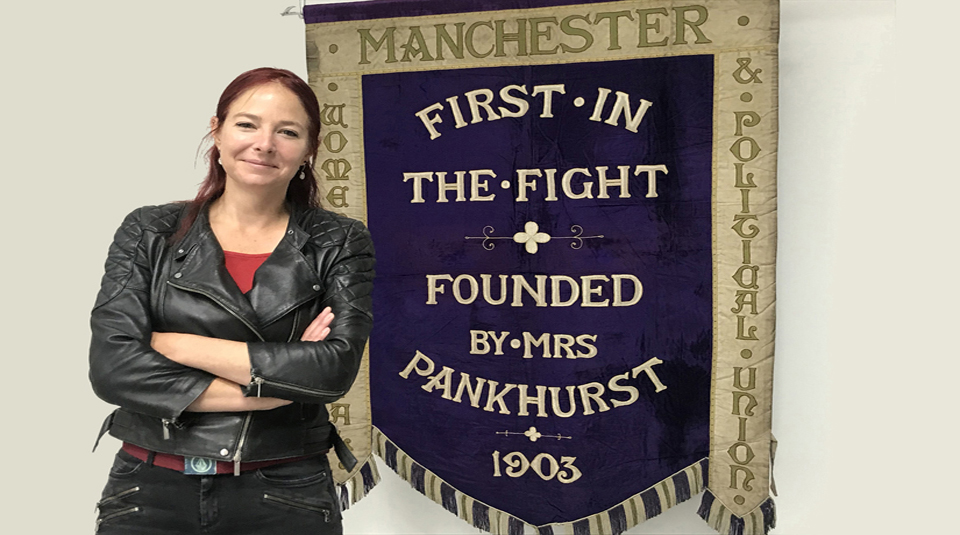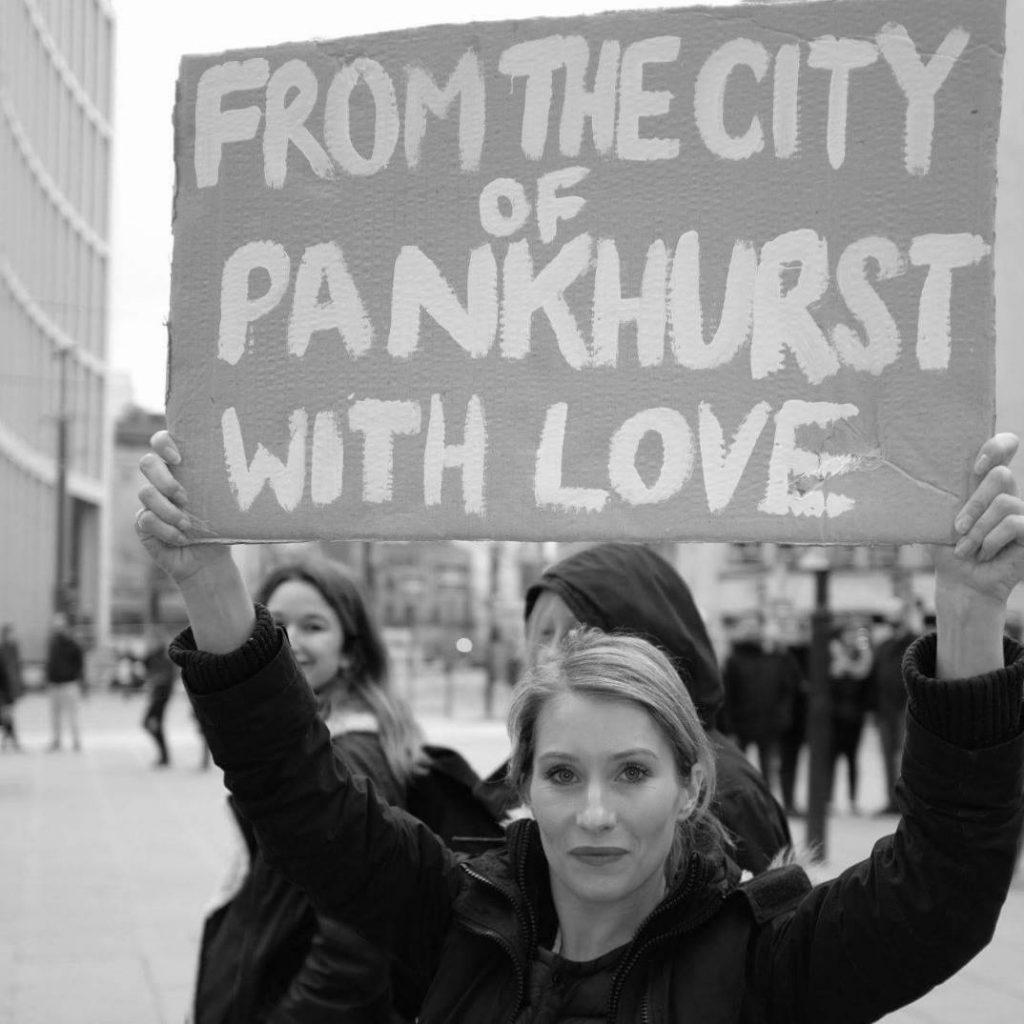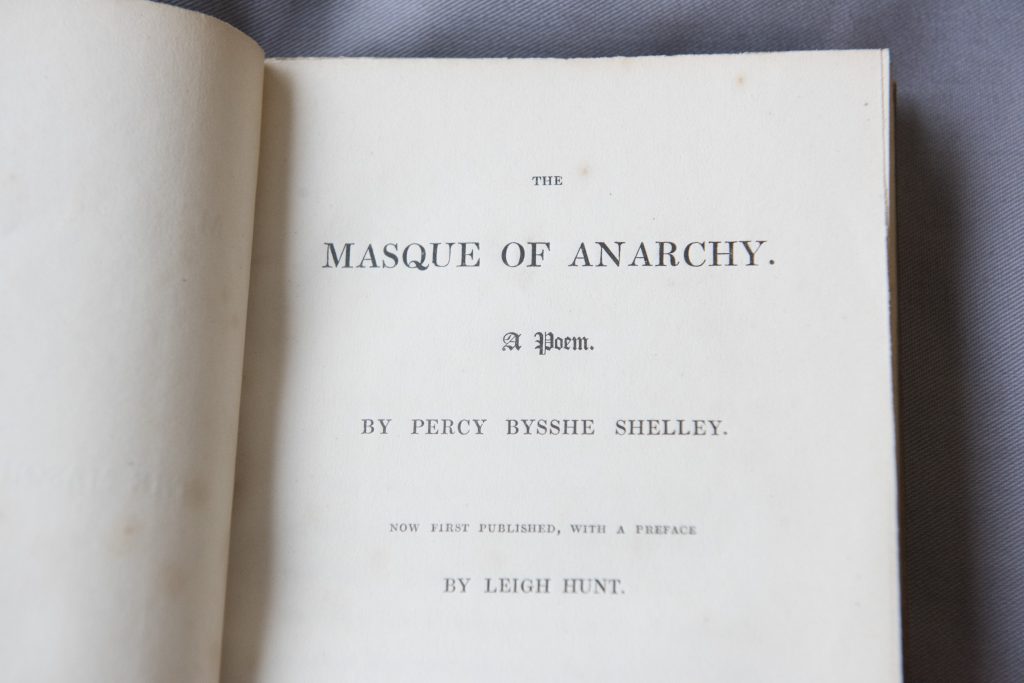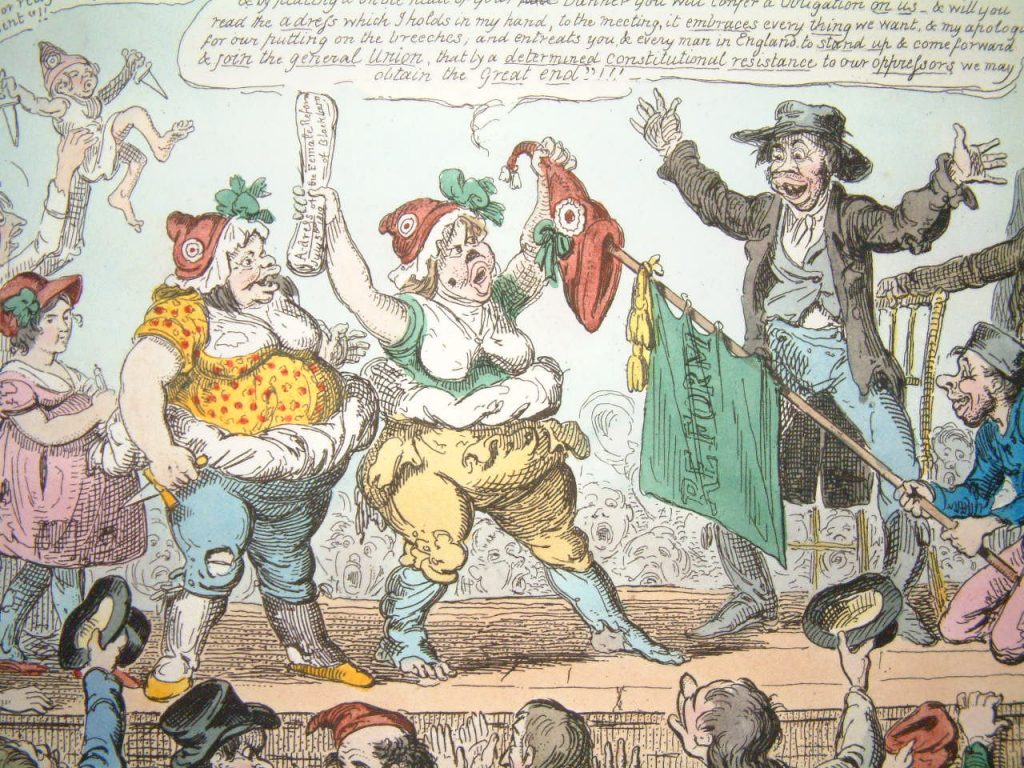PHM is the national museum of democracy, telling the story of its development in Britain: past, present, and future.
On this blog we share posts from the PHM team and other experts, with behind the scenes stories, coverage of PHM's exhibitions and events, and highlights from the museum's unique collection.

People’s History Museum’s (PHM) Head of Collections & Engagement Jenny Mabbott tells us about the very special suffragette banner in the museum’s collection that appeared in Industrial Revolution Manchester, the final episode of Channel 4 show Britain’s Most Historic Towns, with Professor Alice Roberts.

Incredibly it has been 5 years since Women’s Marches took place across the globe; described as one of the biggest human-rights demonstrations in history, with millions taking part and representation in every continent of the world. Manchester was one of the cities that marched on 21 January 2017 and in this blog we hear the fascinating story of the From The City of Pankhurst With Love placard that began its life on this march,. This is the story behind the object in the words of its creator Caroline Dyer, Co-Director of Heard Storytelling and an Events Manager.

Many of the treasures on display for the very first time in PHM’s Disrupt? Peterloo and Protest exhibition were acquired thanks to a joint National Lottery Heritage Fund (NLHF) grant with Salford’s Working Class Movement Library (WCML). To celebrate the opening of the Library’s Peterloo: news, fake news and paranoia exhibition, we asked Lynette Cawthra, Working Class Movement Library Manager to talk about the project which gave both institutions funds to go shopping for new acquisitions.

To celebrate International Women’s Day, we’ve invited our former colleague and the National Trust’s new Programme Curator of National Public Programmes Helen Antrobus to blog for us.
Helen is a specialist in the history and collections relating to 20th century radical women; from the women who marched at Peterloo, to the female Chartists; those involved with the women’s suffrage movement, to the first female MPs, and shares with us her insight into the women at Peterloo.

To complement the public display of a suffragette tea set designed by Sylvia Pankhurst we asked Dr Alexandra Hughes-Johnson, suffrage historian and Women in the Humanities Research Co-ordinator at the University of Oxford, for the story of its former owner, suffragette Rose Lamartine Yates (1875-1954).
Until recently Rose Lamartine Yates has remained a relatively unknown figure in the history of the women’s suffrage movement and despite attempts by historians Elizabeth Crawford, Gillian Hawtin and Gail Cameron to shed light onto Rose’s suffrage career, she is often still remembered for her friendship with the Emily Wilding Davison and her role as the first guard of honour to her coffin at Emily’s funeral on the 14 June 1913.